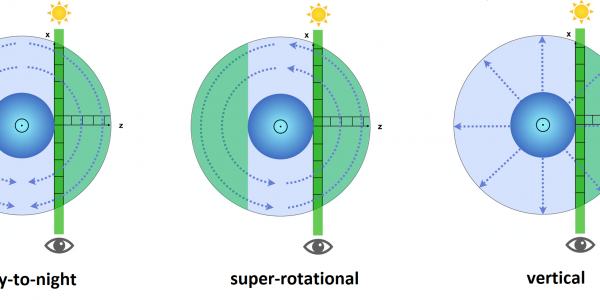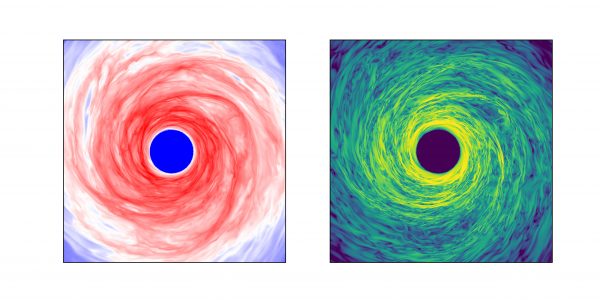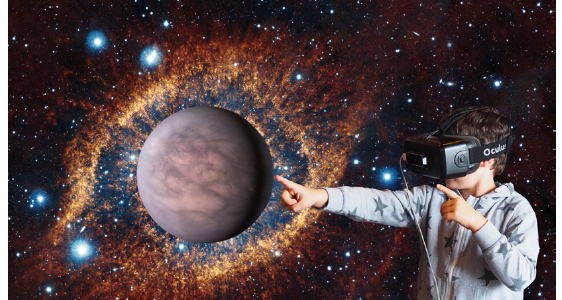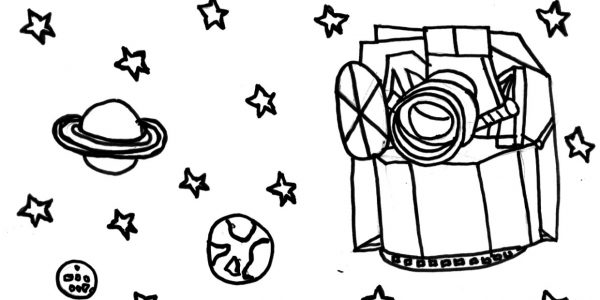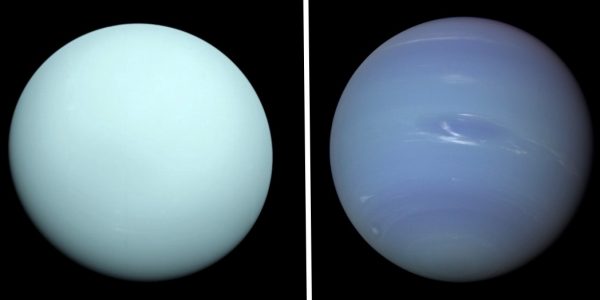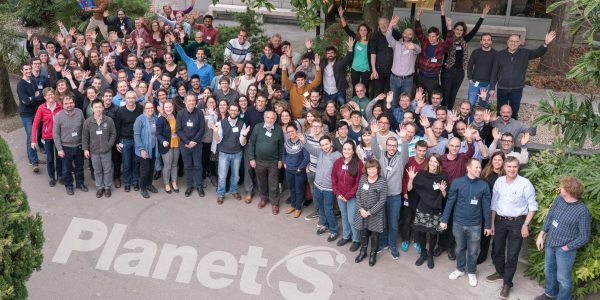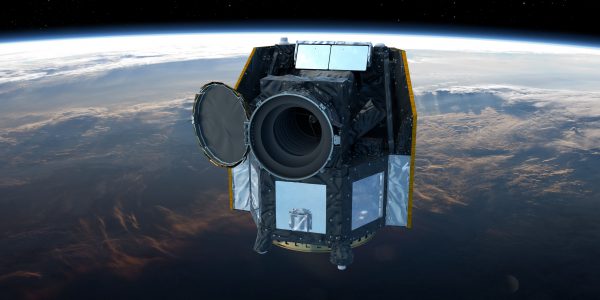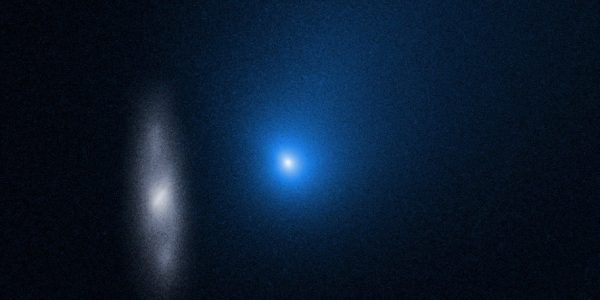Uncategorized
Otherworldly winds
A group of scientists led by the NCCR-PlanetS and the University of Geneva, investigated wind patterns of an exoplanet with extreme conditions. Their insights may also help us understand the atmospheres of other worlds. Including our own. Imagine you were looking down upon the Earth from space. Your task would be to discern the general […]
Continue ReadingScientists achieve simultaneous simulation of gravitation and magnetism of a protoplanetary disk
Researchers from the Universities of Zurich and Cambridge have succeeded for the first time in creating a single computer-simulated model that combines processes in the development of planets that were previously simulated separately. In their novel simulations on the “Piz Daint” supercomputer, they identified a new kind of friction mechanism that could solve a ubiquitous […]
Continue ReadingExplore the universe from home with PlanetS
For weeks we have been spending most of our time at home. We are distancing ourselves from each other, trying to get the Corona crisis under control. That brings with it many challenges. Schools, for example, now often rely on online lessons. But that doesn’t work smoothly everywhere and in some places lessons are cancelled. […]
Continue ReadingEditorial
Living in the days of the Coronavirus is not easy. As many aspects of society shut down in an effort to slow down the progression of the virus, it is difficult to maintain scientific activities. No lectures or colloquia anymore, conferences and schools are cancelled, observatories are restricting operations… Business as usual is no more. […]
Continue ReadingCHEOPS first check-up
After months of uncertainty about the launch date of the CHEOPS satellite, the launch date was finally set for December 17, 2019. A delegation from the Universities of Bern and Geneva were on hand on the scheduled date to attend this unique event in Swiss space history. Although the launch was delayed by 24 hours […]
Continue ReadingWhy Uranus and Neptune are different
The two outermost giant planets of the Solar system have similar masses but there are also striking differences. Researchers of the NCCR PlanetS at the University of Zurich have found an explanation for this long-standing unsolved mystery: Two different giant impacts could have had completely separate effects. Uranus and Neptune are the outermost planets of the Solar […]
Continue ReadingAcknowledgment in publications
Please use one of the following sentences at the end of your papers: If the work you publish has been funded through Phase 3 but not through Phase 2: “This work has been carried out within the framework of the National Centre of Competence in Research PlanetS supported by the Swiss National Science Foundation […]
Continue ReadingPlanetS General Assembly 2020
134 members and associates gathered from 27 to 29 January 2020 in Montreux to present and discuss their research projects, establish contacts between the different institutions in Bern, Geneva and Zürich, and talk about new ideas at the annual NCCR PlanetS General Assembly. With loud, enthusiastic applause the PlanetS scientists acknowledged the news on the […]
Continue ReadingOpening of the CHEOPS cover delayed by a few days
The cover of the CHEOPS space telescope was scheduled to be opened on Monday, January 27, 2020. The date is being pushed back by a few days because several tests are being repeated. The CHEOPS space telescope has been orbiting the Earth at an altitude of 700 kilometers since its launch on December 18, 2019. […]
Continue ReadingCapturing alien comets
There should be interstellar comets hiding in our Solar system after making a journey of many lightyears. Maybe we have already seen one but believed it was a “normal” comet formed in the Solar system. This concludes Tom Hands, astrophysicist at the University of Zürich and member of the NCCR PlanetS. Comets that suddenly light […]
Continue Reading
